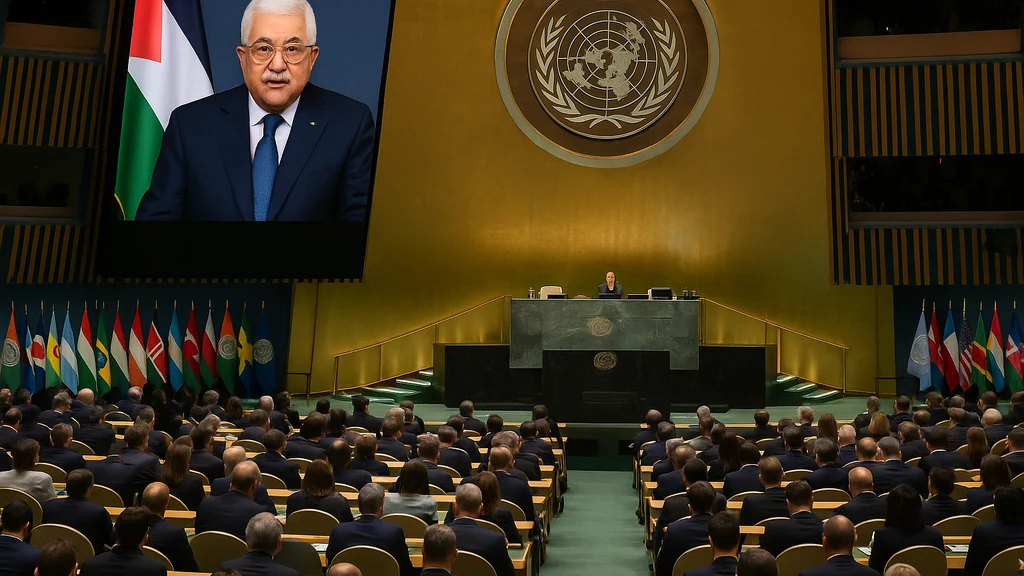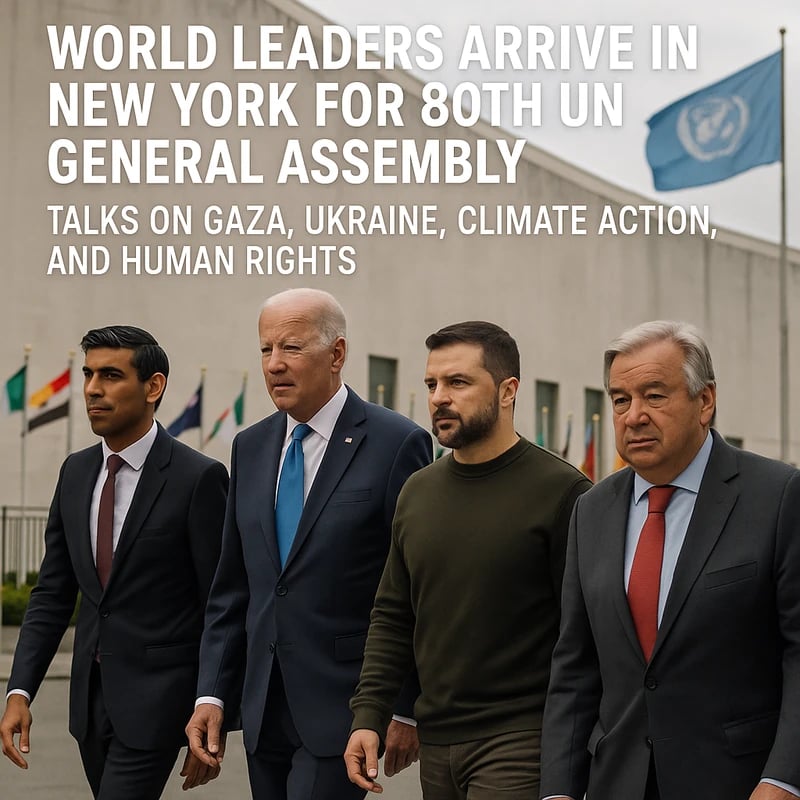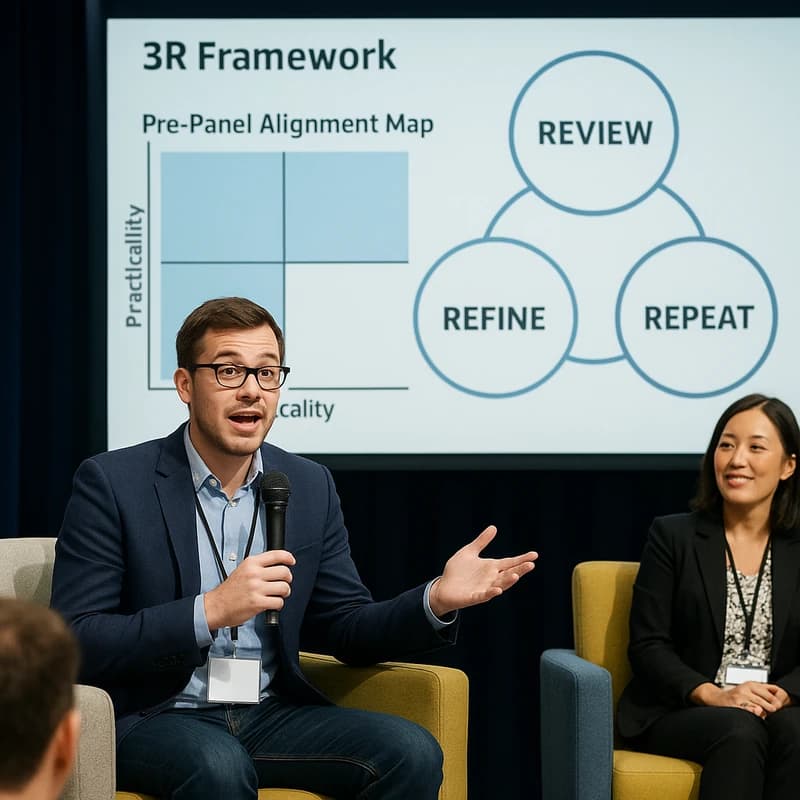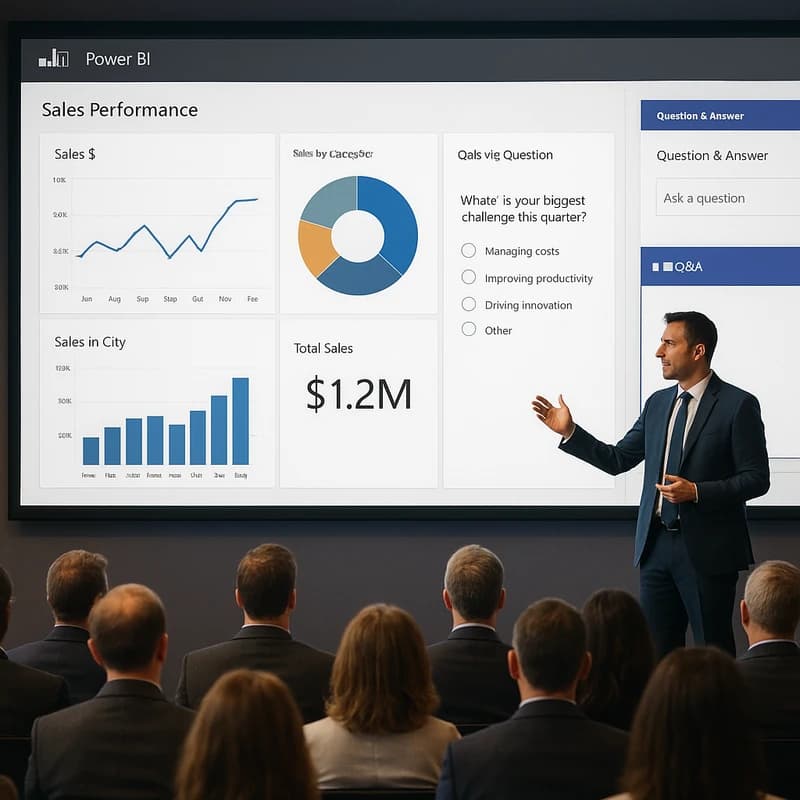Explore how the 80th UN General Assembly tackles Gaza, Ukraine, climate and rights with live speeches, diplomacy signals, and potential breakthroughs.
Quick Answer
The 80th UN General Assembly opens in New York as world leaders converge to tackle Gaza and Ukraine, with multilateralism under pressure and a broad set of debates on Iran, climate, and women’s rights. Notably, Palestinian President Abbas will address leaders via video after a visa denial, while former President Trump plans a return to the UN stage alongside Zelensky. The week’s centerpiece is a high‑level focus on Gaza, Ukraine, and broader peace and development goals. Key takeaway: UNGA 80 is a pivotal moment for diplomacy, with live speeches, security guarantees, and climate commitments shaping the global agenda.
Complete Guide to World leaders converge on New York as 80th UN General Assembly kicks off amid Gaza and Ukraine wars
The 80th UN General Assembly (UNGA 80) marks eight decades of postwar diplomacy, yet this session unfolds under intensifying global strains. The theme, “Better together: 80 years and more for peace, development and human rights,” foregrounds Gaza, Ukraine, Iran’s nuclear file, climate action, and gender equality. Delegations are arriving in force in New York for a week that many will watch for signals about multilateralism’s resilience, the likelihood of new commitments, and the ability of the UN to broker consensus.
-
The UNGA 80th session opened on September 9, 2025, with a broad reception of regional blocs and a marathon of speeches planned through the week. Expect formal addresses from dozens of heads of state, plus a handful of surprise appearances that can set the tone for bilateral diplomacy over coffee after the plenary sessions.

-
Gaza and Ukraine dominate the conversations, but the agenda also includes Iran’s nuclear file, climate resilience, and women’s rights as cross-cutting themes. Analysts emphasize that the interlinked nature of these issues requires cohesive messaging and a clear plan for follow‑through beyond symbolic statements.
-
Abbas’s video address—agreed after a visa denial—highlights the ongoing Israel-Palestine crisis as a central test for the UN’s diplomatic reach. This moment will be watched closely for how the GA treats humanitarian concerns, ceasefire prospects, and long-term statehood considerations.
-
Trump’s return to the UN stage, alongside Zelensky’s expected interactions with world leaders, signals a high‑drama, highly politicized environment where both domestic political narratives and international security implications will be in play.
Snippet: The 80th UN General Assembly elevates Gaza, Ukraine, and human rights to the forefront, with a schedule that blends speeches, negotiations, and reform discussions aimed at reinforcing or revising multilateral commitments.
- The top mandates of UNGA 80 include reaffirming collective commitments to peacekeeping, sustainable development, and human rights protections while balancing national security concerns and humanitarian imperatives.
- Roughly 190–193 UN member states typically participate in UNGA debates, with dozens of heads of state expected on the New York dais during high-level week.
- The GA 80th agenda also tests the UN’s ability to adapt to new geopolitical fault lines—economic sanctions, energy transitions, and climate resilience—within the framework of long-standing UN norms and institutions.
Key Takeaway: UNGA 80 is set to be a stress test for multilateralism, blending high-stakes diplomacy on Gaza and Ukraine with broader crises that require coordinated international action and credible security assurances.
Why This Matters
The geopolitical moment surrounding UNGA 80 is defined by two recurring pressures: the ongoing Gaza crisis and the war in Ukraine, both of which shape the broader international order and the credibility of multilateral institutions.
- Gaza and Ukraine are not isolated flashpoints; they influence the UN’s capacity to mobilize aid, establish ceasefires, and coordinate humanitarian corridors. In recent months, humanitarian agencies have reported rising needs in Gaza, while Ukraine remains central to European security architectures and global energy and food security.
- Multilateralism has been tested by divergent national priorities. The 80th session will measure how far states are willing to compromise for collective action—from climate commitments to arms control and humanitarian access.
- Climate, Iran’s nuclear file, and women’s rights sit at the intersection of security and development. Leaders are increasingly asked to connect climate resilience with peacebuilding and to address gender mainstreaming in conflict-affected regions.
- Real-time monitoring shows spikes in public interest as delegations land and schedules leak. This isn’t just a diplomatic event; it’s a mirror for the public, journalists, and watchdogs seeking signals about future policy shifts and potential breakthroughs.
Data points and insights:
- UNGA 80’s high-level week is anticipated to span several days of speeches and informal dialogues, with governments presenting policy visions for post‑war recovery and sustainable development.
- Expect a mix of formal addresses and side‑meetings that could yield new security guarantees, humanitarian pledges, and climate finance commitments.
- Analysts note that video addresses (like Abbas’s) are increasingly used to manage access while ensuring that voices from all sides can participate in the debate.
Key Takeaway: The 80th UN General Assembly is more than a ceremonial gathering—it’s a platform for setting red lines, unlocking humanitarian corridors, and signaling commitments on climate and human rights amid evolving security concerns.
Snippet: The week’s debates will test whether UNGA can translate high‑level rhetoric into practical, shared strategies for Gaza, Ukraine, climate action, and global gender equality.
Snippet: A key outcome to watch is whether concrete security guarantees for Kyiv and humanitarian terms for Gaza translate into new UN-backed resolutions or action plans.
Snippet: The attendance and engagement of major powers will provide a read on whether the international community can sustain a unified approach to Iran’s nuclear ambitions and regional stability.
Snippet: The climate context will shape both finance pledges and adaptation strategies—arguably, a test of whether development and peacebuilding can proceed hand in hand.
Key Takeaway: The overarching question for UNGA 80 is not only what will be said, but what will be done—and how quickly multilateral mechanisms can translate speech into action.
Practical Applications
For readers who want to translate the headlines into usable insights, here’s how to apply the UNGA 80th insights to policy analysis, journalism, or civic engagement.
- Track live speeches and outcomes: Use the UN webcast and official briefings to monitor which leaders speak, in what order, and what policy commitments accompany each address.
- Follow side events and working group conclusions: The GA week includes numerous informal dialogues and parallel conferences focused on development finance, humanitarian access, and disarmament initiatives.
- Analyze the rhetoric against real commitments: Watch for explicit language on ceasefires, sanctions, humanitarian corridors, and climate finance flows—then compare to enacted resolutions and budgetary allocations.
- Monitor visa and participation dynamics: Incidents like Abbas’s video address illustrate how access constraints shape the representation in global fora and influence perceived inclusivity.
- Map the geopolitical texture: Create a matrix of leaders by region, noting which bilateral meetings are planned, which will issue joint statements, and which may signal shifts in alliances or strategic priorities.
- Use trends dashboards for real-time signals: Google Trends and live blogs can reveal which topics capture public imagination, informing subsequent media coverage and policy debates.
Data points to consider as you watch:
- Calendar snapshots during high-level week: number of state heads, plenary sessions, and the typical cadence of debate on Gaza, Ukraine, and climate.
- Public sentiment and media framing: how coverage fluctuates before and after major speeches can indicate momentum or stagnation in the policy conversation.
- The balance of hard security language versus humanitarian and development pledges, which often predicts the speed and scale of follow‑through.
Key Takeaway: Practical engagement with UNGA 80 involves timely watching, critical comparison of rhetoric vs. action, and strategic analysis of how speeches translate into policies and budgets.
Expert Insights
Policy analysts and diplomacy experts agree that the 80th UN General Assembly will test whether the UN can reassert legitimacy in a multipolar world while delivering tangible gains on core humanitarian and security challenges.
- Insight 1: Diplomatic resilience hinges on coupling high‑level commitments to implementable action plans. This means translating declarative language into ceasefire mechanisms, aid corridors, and monitoring regimes.
- Insight 2: The Gaza file requires credible humanitarian access and political feasibility, with a need for durable solutions that respect international law and civilian protection norms.
- Insight 3: Ukraine’s post‑war security guarantees will be essential for European stability, but must be balanced with broader regional diplomacy, including energy resilience and strategic deterrence.
- Insight 4: Iran’s nuclear diplomacy remains a critical hinge for regional stability; observers expect proposals that thread verification, enrichment limits, and regional security assurances through multilateral channels.
- Insight 5: Climate and gender rights are increasingly non‑negotiable for development outcomes; leaders face pressure to align climate finance with humanitarian and peacebuilding efforts.
Key Takeaway: The most consequential outcomes from UNGA 80 will be concrete, trackable commitments rather than broad statements, with a premium on credible timelines, independent verification, and transparent reporting.
People Also Ask
What is the 80th UN General Assembly?
The 80th UN General Assembly is the annual meeting of the United Nations General Assembly, where nearly all UN member states gather to debate global issues, set goals, and adopt resolutions on peace, development, and human rights. The 80th session carries a theme focused on decades of progress and ongoing challenges, notably Gaza, Ukraine, climate action, and gender equality. Key takeaway: It’s a global platform for collective action and accountability.
When does UNGA 80 start?
UNGA 80’s high‑level week starts in late September 2025, with opening sessions and the first round of speeches and debates. The week typically runs from Monday through Friday, though bilateral meetings and side events extend the conversation across the entire window. Key takeaway: Expect a dense schedule of plenary addresses and numerous side events in a compressed timetable.
Where is the UN General Assembly held in 2025?
The UN General Assembly meets at the United Nations Headquarters in New York City. The main plenary sessions are held in the General Assembly Hall, with many side events and press briefings throughout the complex. Key takeaway: New York remains the hub for global diplomacy during UNGA week.
Who will speak at UNGA 80?
Leaders from almost 190 UN member states typically deliver formal addresses, along with key ministers, special envoys, and representatives from regional organizations. Notable participants can include heads of state, foreign ministers, and high‑level delegations, some delivering virtual remarks if travel is restricted. Key takeaway: Expect a mixture of traditional leaders and evolving voices in the lineup.
Why is Gaza and Ukraine a focus at UNGA 80?
Gaza and Ukraine represent urgent humanitarian crises and strategic security concerns that reverberate across international law, refugee flows, energy markets, and regional stability. Their prominence reflects a broader test of multilateral diplomacy: can the UN mobilize aid, pressure belligerents toward ceasefires, and secure durable political agreements? Key takeaway: Gaza and Ukraine are litmus tests for the UN’s efficacy and credibility.
How can I watch UNGA 80 speeches online?
Most speeches are streamed via the UN’s official website and partner broadcasters. Live blogs and press briefings provide real-time updates, while social media channels offer quick summaries and expert commentary. Key takeaway: Use official streams for the most reliable coverage and corroborate with trusted news outlets for context.
Will Abbas address UNGA 80 via video?
Yes, Abbas is slated to address the General Assembly via video after a visa denial that prevented in‑person participation. This format ensures that Palestinian perspectives remain represented, while also highlighting ongoing access and diplomatic protocol issues. Key takeaway: Video addresses are increasingly used to preserve participation amid logistical or political constraints.
How will the climate and women’s rights agenda be addressed at UNGA 80?
Delegates are expected to advance commitments on climate finance, adaptation, and mitigation, alongside measures to promote gender equality and protect women’s rights in conflict and post‑conflict contexts. Watch for pledges on finance, capacity-building, and accountability mechanisms. Key takeaway: Climate and gender issues are deeply integrated into development and peacebuilding strategies at UNGA 80.
What kinds of outcomes should observers look for from UNGA 80?
Observers should look for concrete resolutions, action plans, new finance commitments, and timelines for implementation, particularly around Gaza humanitarian access, Ukraine security guarantees, climate finance, and Iran diplomacy. Key takeaway: The strength of UNGA 80 lies in the specificity and follow-through of its outcomes.
How will UNGA 80 influence future diplomacy and security arrangements?
If UNGA 80 yields credible commitments and verified progress on conflict resolution, humanitarian relief, and climate finance, it could reshape the norms of international cooperation and deterrence in a multipolar world. Key takeaway: The week’s outcomes may redefine how nations collaborate on long‑term peace and resilience.
What internal topics should journalists monitor during UNGA 80?
Journalists should monitor scheduled speeches, veto-proxy dynamics, bilateral meetings, and the evolution of language in resolutions related to Gaza, Ukraine, and Iran; pay attention to the timing of major announcements and any shifts in coalition blocs. Key takeaway: The morning briefings and plenary line-ups often signal policy momentum or stumbles.
Next Steps
- If you’re following UNGA 80 for policy analysis or journalism, set up alerts for major plenary sessions, joint statements, and leadership bilaterals.
- Create a watch list of countries with planned new commitments on climate finance, humanitarian aid, or security guarantees, and track their execution post‑GA.
- Follow credible think tanks and UN briefings for independent assessments of progress, verification mechanisms, and implementation gaps.
- Consider live-tweet threads or blog updates to translate complex negotiations into accessible summaries for a broad audience.
- Explore related topics for deeper understanding and cross-linking: diplomacy, peacekeeping, humanitarian aid, sanctions regimes, Israel-Palestine peace process, Iran nuclear deal, climate finance, gender equality, international law, security architecture, multilateral reform.
Key Takeaway: A structured post‑GA plan—combining live monitoring, post‑session analysis, and cross‑topic synthesis—will maximize understanding of how UNGA 80 translates into concrete global action.
Related topics for internal linking (conceptual)
- Diplomacy and international negotiations
- Peacekeeping and humanitarian aid
- Climate finance and resilience
- Israel-Palestine conflict and humanitarian law
- Ukraine crisis and security guarantees
- Iran nuclear diplomacy and regional security
- Human rights and gender-based violence
- Multilateral institutions and reform
- Global governance and international law
Final note: The 80th UN General Assembly is more than a ceremonial week in New York. It’s a crucible where competing interests, humanitarian imperatives, and long‑term development goals collide. By watching the sequence of speeches, the nature of proposed resolutions, and the speed of follow‑through, readers can gauge not just what leaders say, but what they intend to do—and how quickly the international community can act to safeguard peace, development, and human rights in a fractured era.



